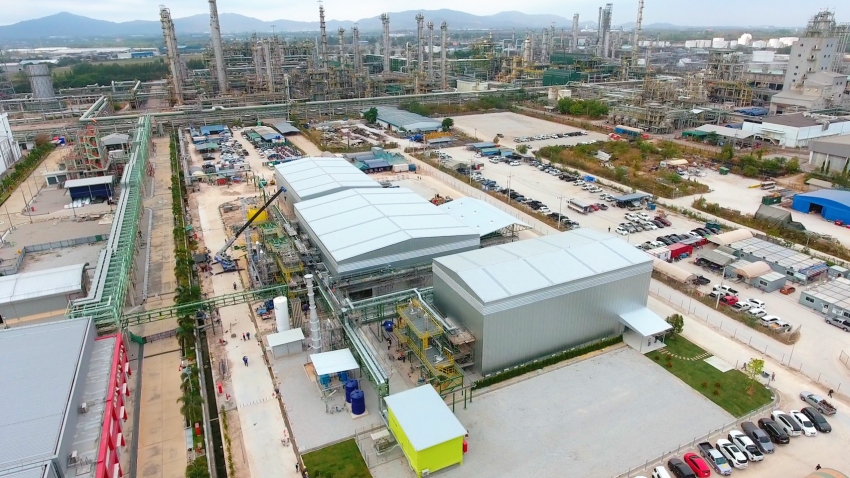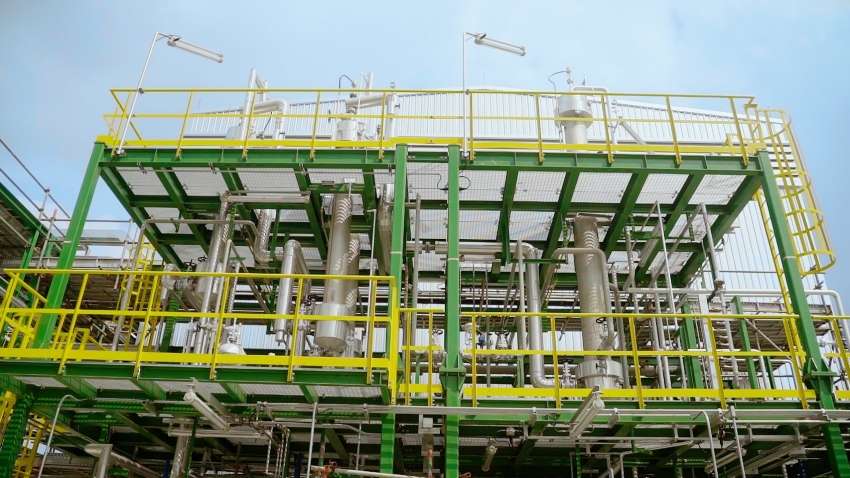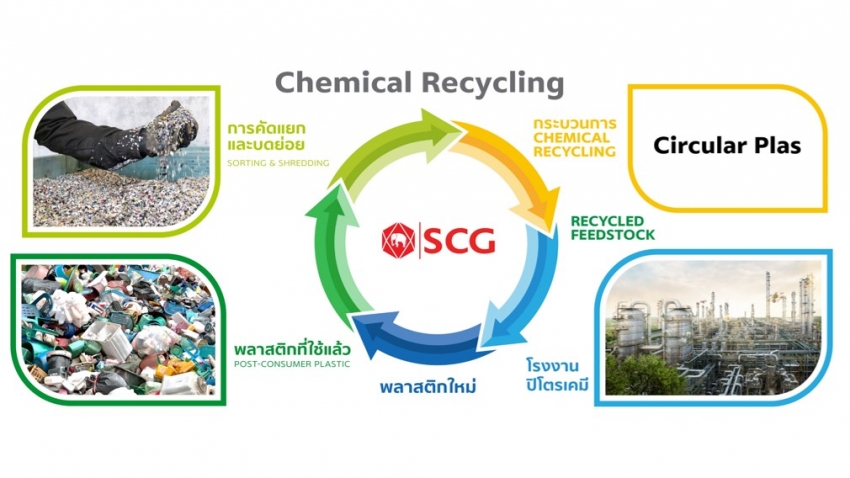Plastic is a valuable material invented as a substitute for natural resources, especially forest resources. With a broad range of benefits, plastic is generally used to serve several modern society functions and needs. Plastic is, without question, valuable material for people's lives. However, post-use plastic management has remained a challenge that needed to be addressed as a matter of priority.
Two million tons is the amount of plastic waste Thailand generates each year, with only 25 percent is reused. Particularly during the school holidays and the spread of COVID-19 over the past year, plastic waste jumped 15 percent and 62 percent, respectively. If the situation is allowed to continue, the tendency of deterioration to the society and the environment inevitably follows. That is why all sectors have to join forces to reduce the impacts and bring about effective management solutions.
As a Thailand's leading chemical manufacturer and Southeast Asia's polymer specialist, Chemicals Business, SCG, is well aware of such an issue. Thus, it strives to create and develop technologies, innovations, and solutions to effectively and sustainably find the way out of such global challenges. Chemical Recycling is one of the company's strategic plans to tackle the issue.
What is Chemical Recycling?
Plastic recycling has been described as "the process of recovering scrap or waste plastics and reprocessing the material into useful products, sometimes completely different in form from their original state" by classifying by the final product of any given recovery process as the criteria. There are four main types of the plastic recycling process:
- Primary recycling is a process that reuses recovered contamination-free plastic of similar quality in the manufacturing or remanufacturing process. The recovered materials may be reused or used as a mixture with virgin materials at the production's appropriate proportion.
- Secondary recycling is a process of recycling recovered plastic by washing, grinding, melting, and reprocessing into a plastic product.
- Tertiary recycling is a process that involves chemical or thermal manipulation to break down hydrocarbon molecules of recovered plastic.
- Quaternary recycling is a process that creates alternative energy using plastic to reduce the amount of fuel used for incineration.
Chemical recycling is classified as tertiary recycling, which attracts great attention as it reduces the volume of plastic waste and is efficient resource management in line with the circular economy.
Chemical recycling is a polymer-to-monomer recycling process by processing recovered plastic with chemical reactors under appropriate conditions to break down large molecules or polymer chains, resulting in depolymerization that converts materials into monomer or oligomer where the outputs can be different. The processed output will then be purified by distillation and crystallization and become a high-quality substrate used as feedstock for plastic resin production.
SCG's Role in Advanced Recycling Innovation
With SCG's unwavering commitment to driving and reinforcing a wider adoption of the circular economy in Thailand with its integration of such approach to business operation, Chemicals Business, SCG, one of the SCG core businesses, has announced strategic business direction for 2021 toward a "Chemicals Business for Sustainability" in line with SDGs (Sustainable Development Goals) and ESG (Environmental, Social, Governance). One of the key strategic plans to help the company achieve being the Chemicals Business for Sustainability is Accelerating Circularity. Chemical recycling is one of the four areas in the roadmap.
On 28 January, Chemicals Business, SCG, has launched Thailand's first demonstration plant in its complex in Rayong. The demonstration plant is set to develop and scale-up chemical recycling technologies that can turn post-use consumer plastic into recycled feedstock for virgin plastic resin production for petrochemical plants. Chemicals Business, SCG, has developed advanced chemical recycling at the initial stage by utilizing a catalyst in the process to lower process temperature, an energy-saving and environmentally friendly approach, and a way to help improve Thailand's domestic plastic waste management.
The demonstration plant will produce approximately 4,000 tons of recycled feedstock per year, and the capacity expansion plan is at hand. Furthermore, Chemicals Business has partnered with a technology startup to co-develop the recycling technology and co-establish Circular Plas Co.,
Photos: vhv.rs, eco-business.com and picpng.com







